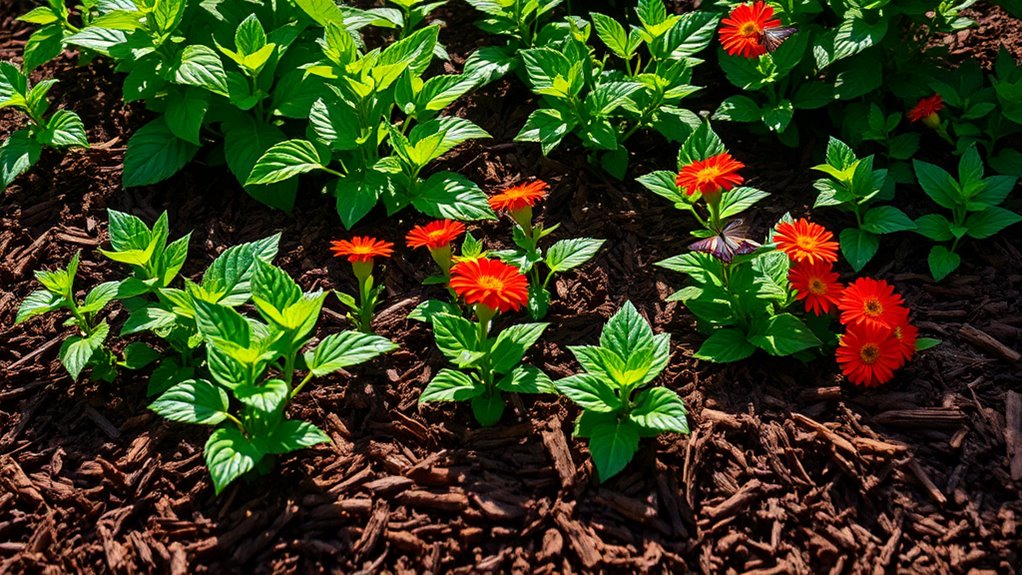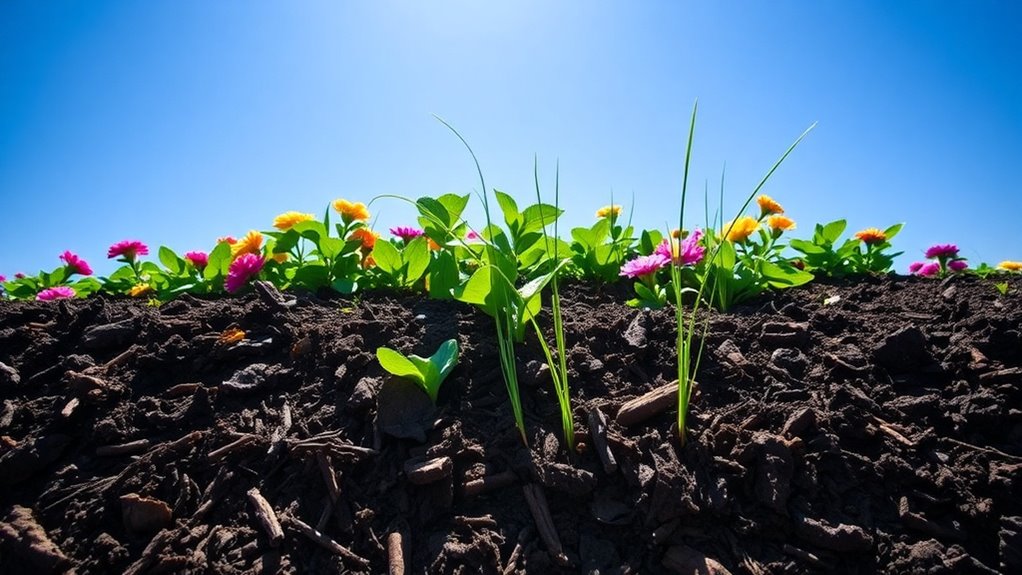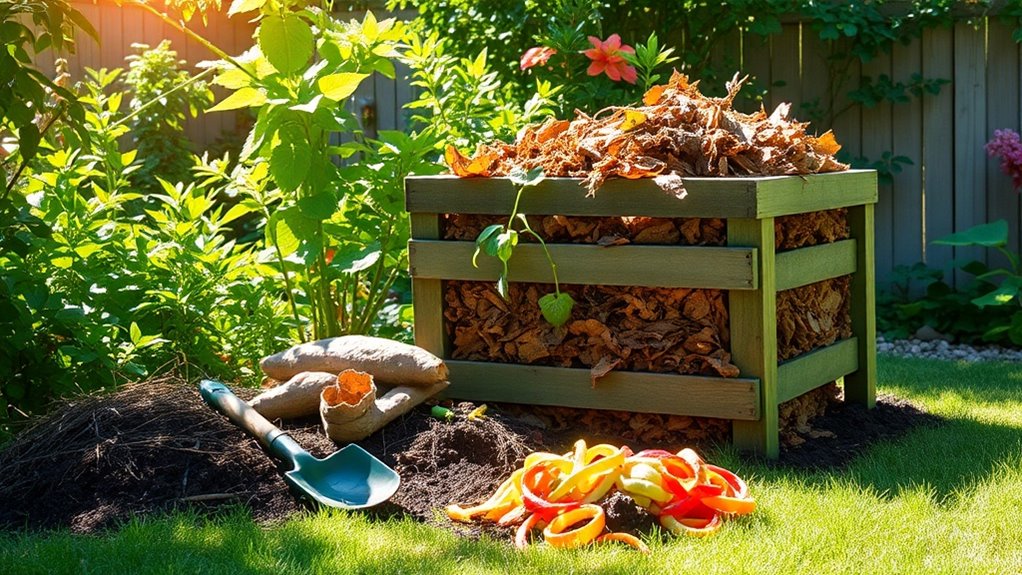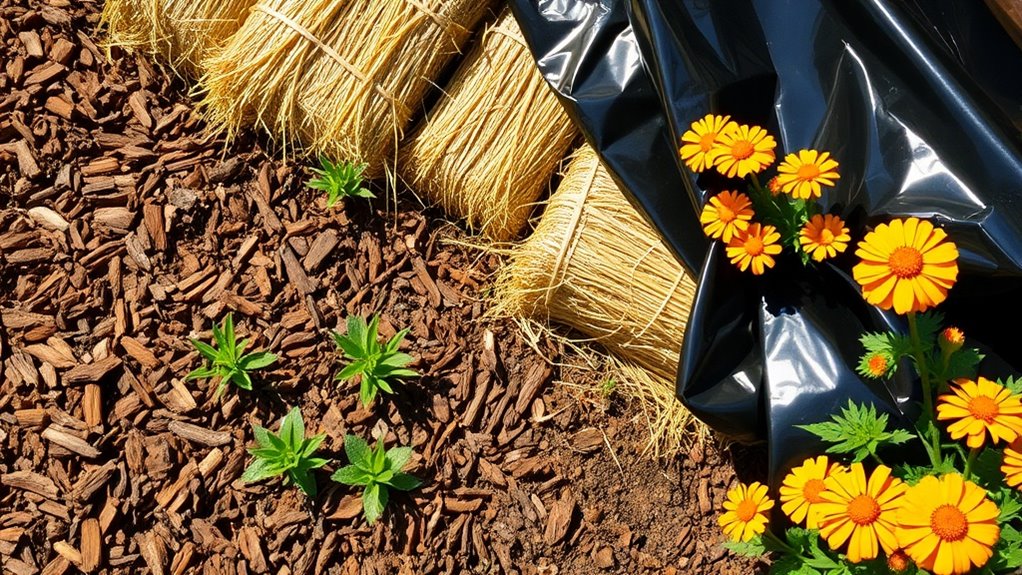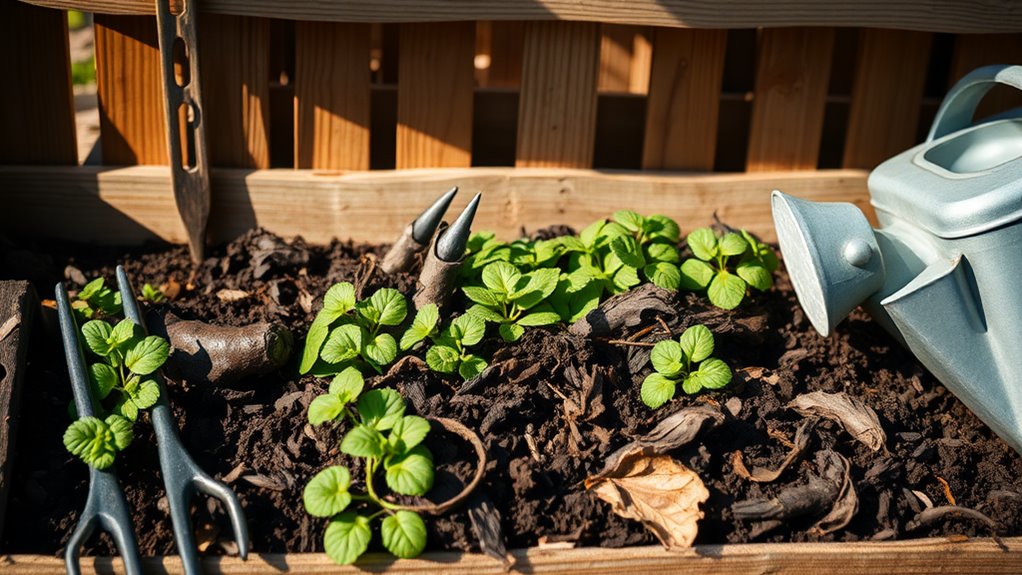I Never Thought Mulch Would Make This Much Difference
You might be underestimating the power of mulch in your garden. This unassuming layer does more than just cover the soil. It plays a vital role in retaining moisture, suppressing weeds, and enhancing soil structure. You’ll notice healthier plants thriving in this environment. Once you see the transformative effects, you’ll wonder what else mulch can do for your gardening practices. The journey into mulch’s multifaceted benefits is just beginning.
The Importance of Moisture Retention
When you apply mulch to your garden, you’re not just adding a decorative layer; you’re enhancing the moisture retention that plants crave. This simple technique reduces evaporation, keeping soil consistently moist and promoting healthy root development. Plus, with improved moisture levels, your plants become more resilient against drought. These mulch garden benefits elevate your garden’s health, ensuring it thrives through all seasons. Moreover, mulch acts as a natural barrier against weeds, minimizing competition for moisture and nutrients essential for your plants.
Effective Weed Suppression Strategies
While you’re nurturing your garden’s growth, effective weed suppression strategies become crucial for maintaining a healthy landscape. Utilize methods like mulch, hand-weeding, and landscape fabric to keep those pesky weeds at bay. One of the most effective techniques is using mulch, which not only helps with weed suppression but also keeps the soil consistently moist, promoting a thriving garden ecosystem.
| Strategy | Description | Effectiveness |
|---|---|---|
| Mulch | Organic layer that blocks sunlight | High |
| Hand-weeding | Manual removal of weeds | Moderate |
| Landscape Fabric | Barrier against weed growth | High |
Enhancing Soil Health and Structure
Weeds may be kept at bay with strategies like mulch, but the foundation of a thriving garden lies in the soil’s health and structure.
By incorporating organic materials, you boost nutrient retention and enhance microbial activity. This creates a rich ecosystem, improving drainage and aeration. Effective mulching techniques can further optimize the benefits of your gardening efforts.
Healthy soil, nourished by thoughtfully layered mulch, supports robust plant growth and resilience against pests and diseases.
Aesthetic Benefits of Using Mulch
As you layer mulch in your garden, you’ll instantly elevate its aesthetic appeal, creating a visually pleasing backdrop for your plants.
The rich colors of organic options, like cocoa hulls or bark, add depth, while inorganic choices, such as gravel, introduce texture.
Mulch also helps unify diverse plantings, transforming chaotic patches into cohesive spaces that captivate the eye and enhance the overall beauty of your landscape.
Types of Mulch: Choosing the Right One
How do you decide which type of mulch is best for your garden?
Consider the materials—wood chips, straw, or rubber—each offers unique benefits.
Wood chips enrich the soil as they decompose, while straw guards against weeds and retains moisture.
Rubber mulch lasts longer and is eco-friendly.
Choose based on your garden’s needs, climate, and aesthetics for optimal results.
Mulching Techniques for Garden Success
Choosing the right type of mulch sets the stage for successful garden care, but effective mulching techniques can take your efforts even further. Layer mulch thick enough to suppress weeds, keep moisture in, and enhance soil. Rotate types seasonally for optimal benefits. Here’s a quick reference for emotional impact:
| Technique | Benefit | Emotional Impact |
|---|---|---|
| Layering | Weed suppression | Peace of mind |
| Seasonal rotation | Nutrient boost | Thriving garden joy |
| Water retention | Soil health | Comfort in growth |

